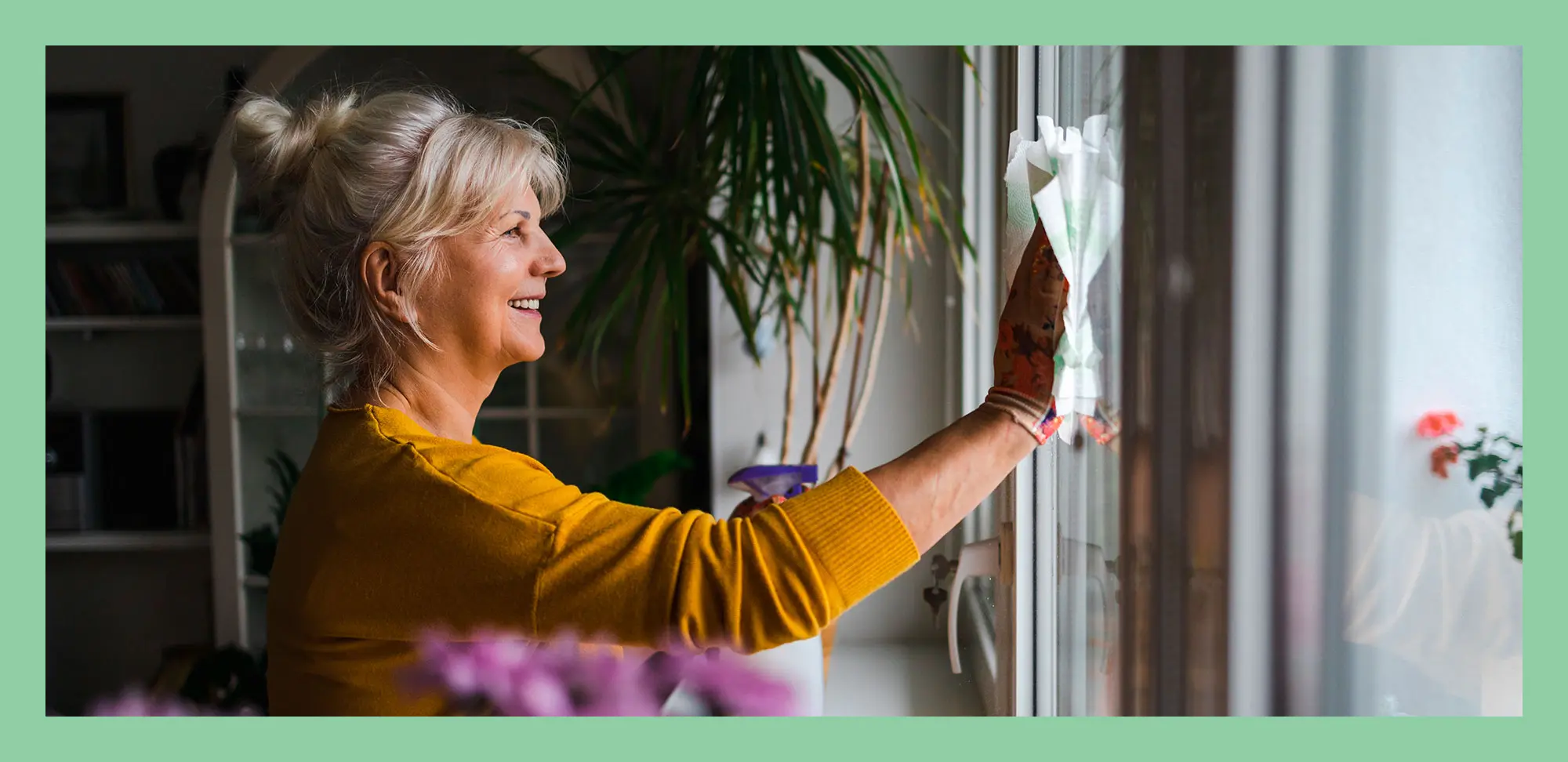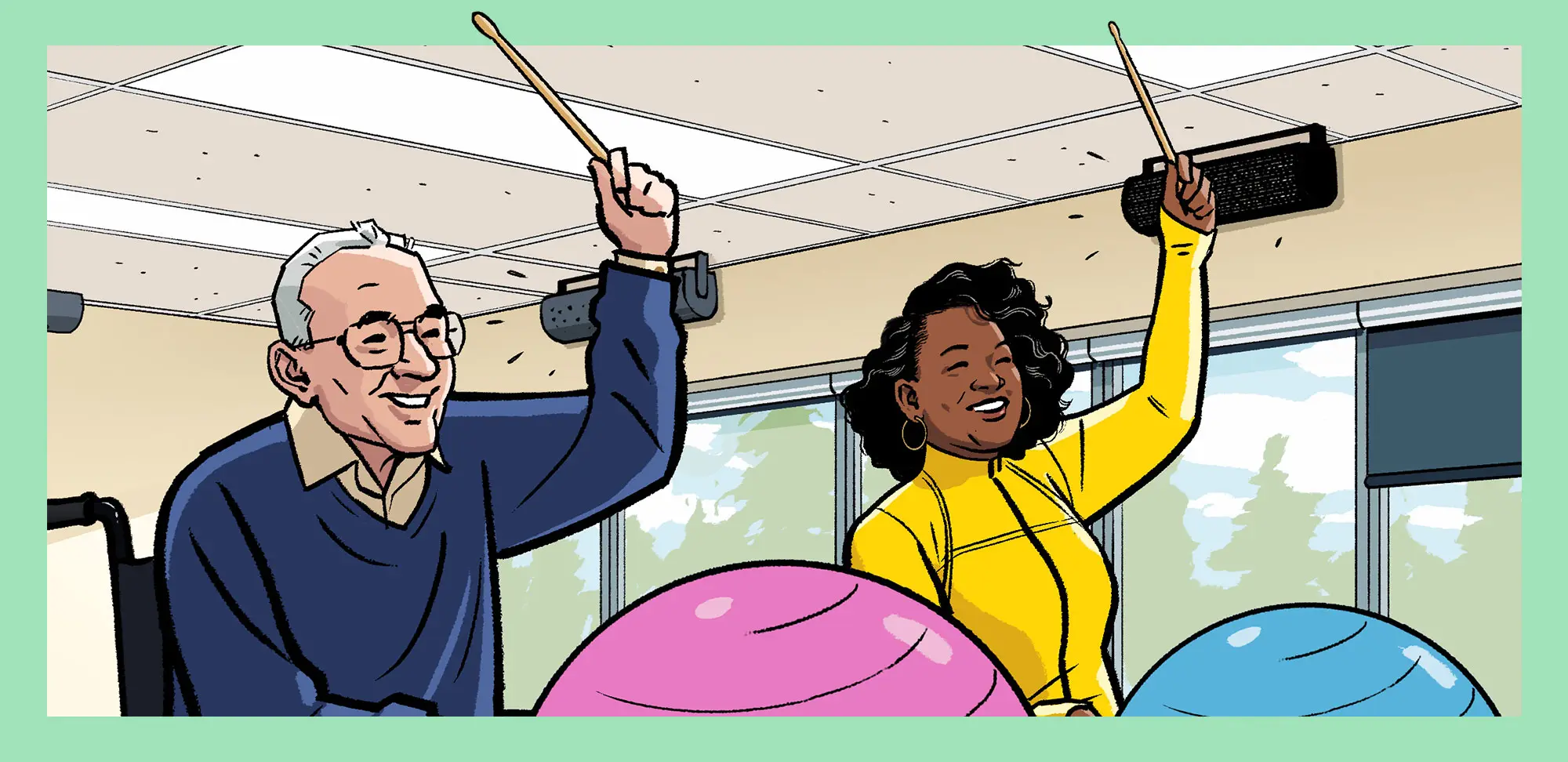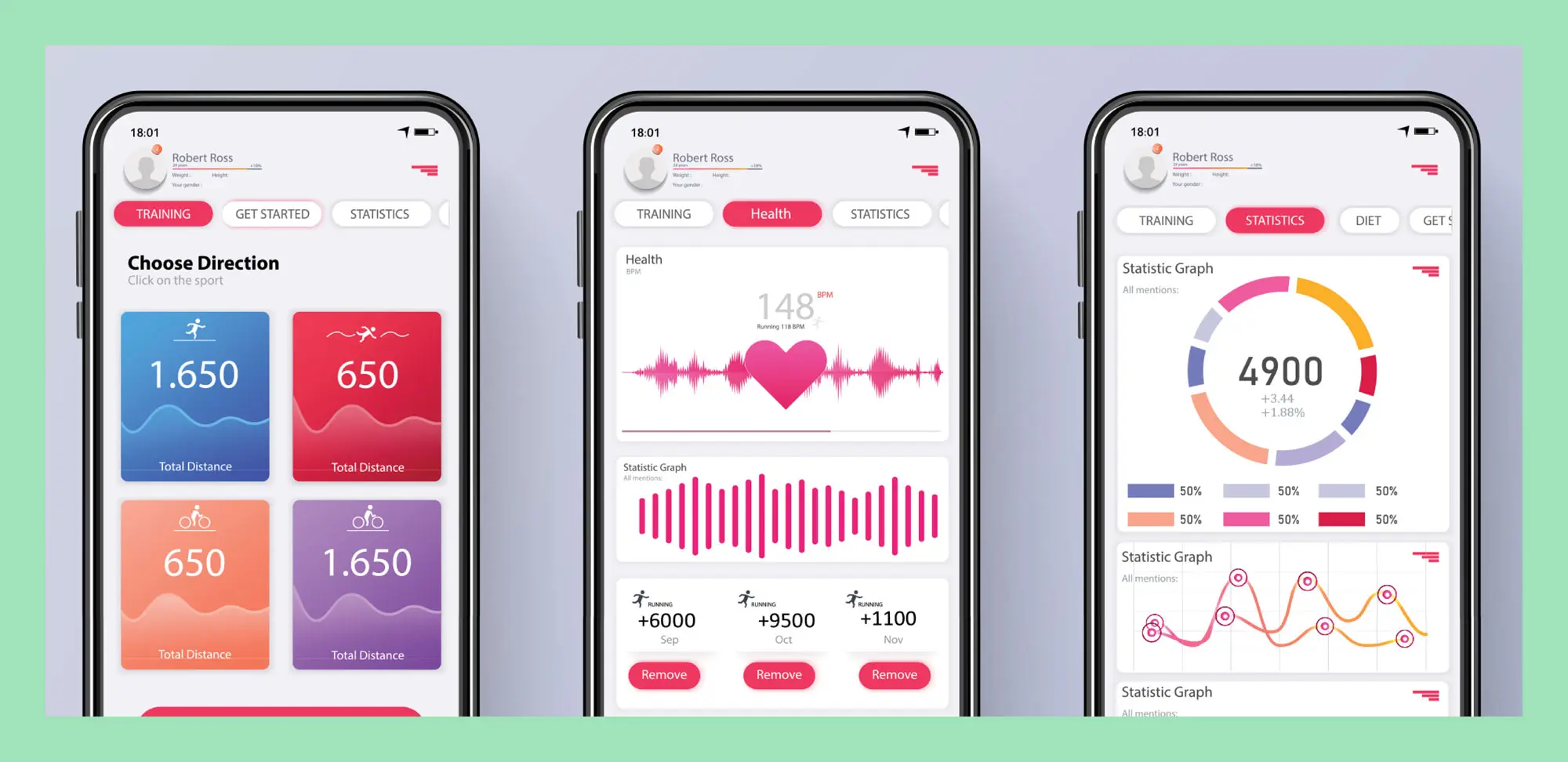You’re sipping your morning latte and running through your plans for the day. Maybe edit your closet. Tidy up your garden. Clean the silver. Putter.
And guess what? That’s activity that is good for your mental and physical health. According to the Cambridge Dictionary, putter means “to do things in a relaxed way, without rushing or trying very hard.” And while doing daily chores may not seem very relaxing, one Canadian study shows the benefits of cleaning house.
Researchers at the Rotman Research Institute (RRI) looked at 66 older participants and the links between household chores, brain volume and cognition. During the study, participants were asked about the amount of time they spent on everyday-living chores – dusting, making jam, doing a load of laundry, mucking about in the garden and such.
“We found that household chores predominantly were related to brain volume,” says Dr. Nicole Anderson, senior scientist at the RRI, director of the Ben and Hilda Katz Interprofessional Research Program in Geriatric and Dementia Care, and senior author of the study. In other words, mopping the floor, for example, equals increased brain size – specifically in the hippocampus (critical for memory) and the frontal lobe (important for organization and planning), she says. That means those who spend more time vacuuming under the couch, for example, likely spend less time sitting on it. And that’s a good thing.
In addition, some chores – such as scrubbing floors or vacuuming – are more physically taxing. And this type of “exercise” can help with things like depression, Anderson says. But there isn’t anything special about cleaning activities, she says. These activities could be repairing a dripping faucet or grocery shopping, for example. “Our perspective in this study was more about the physical activity that [chores] provide compared to just being sedentary.” And we could all use a little more physical activity – 150 minutes per week, according to guidelines from the Canadian Society for Exercise Physiology.
But puttering is about more than not being a couch potato. In a long-term study in the United Kingdom, more than 500,000 dementia-free participants were recruited to establish their risk of the brain disorder. After an average follow-up of about 10 years, the researchers identified more than 5,100 cases. Results show that those adhering to regular routines of physical activity – including household work – had lower risk of the disorder.
Focusing on any kind of puttering can also be a good distraction – but the key is to focus, which leads to a better mood. A study from Florida State University had 51 college students participate in washing dishes. Half were asked to read information encouraging them to “focus” on the sensations of the task. The other half were asked to read instructions on how to wash dishes, with no mention of focusing on the sensations. According to the study, the first group of participants said they had “significantly better mood,” such as increased inspiration and decreased nervousness, as well as more mindfulness.
Puttering can also provide us with a sense of what is called “perceived control.” A large number of studies over the last half-century suggest that “perceived control” is key to improved physical and mental health. In other words, when people feel they have control, they have better overall health outcomes, including physical strength and life satisfaction.
Consider this US study of nursing home residents. The residents were divided into two groups: One group was allowed to rearrange their room furniture as they saw fit and care for a plant; the other was told that the staff would rearrange the furniture and water the plant. Those who were responsible for their own rearranging and watering “enjoyed better physical health.”
And while puttering involves actual physical movement, Anderson says that doing chores also frees up our minds. “When you’re ironing or vacuuming, you don’t really have to think about what you’re doing too much.” (Unless you’re ironing a linen dress, she jokes.) “You can think about other things, work through your issues, or plan for your next day.”
Or even be more creative. Another US study suggested that performing tasks that let the mind wander could assist in “creative problem solving.”
And doing those chores that maybe you don’t have time to do or don’t necessarily want to do could keep your anxiety at bay. “There are a lot of differences between people and what puts their minds at ease,” Anderson says. “For some, having a clean, orderly house helps them stay in good mental health. They get less anxious about things.”
So, really, why should you putter? It comes down to getting yourself “off your seat,” Anderson says. But it’s also a “meditative practice – and we know there are benefits from meditation.”










